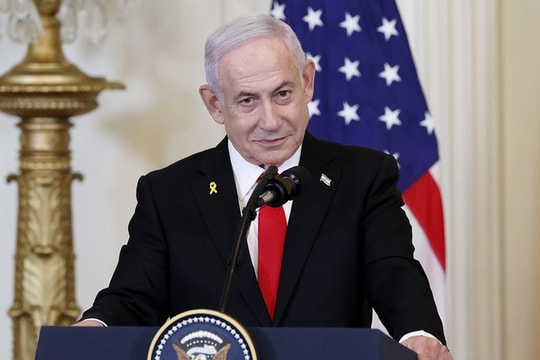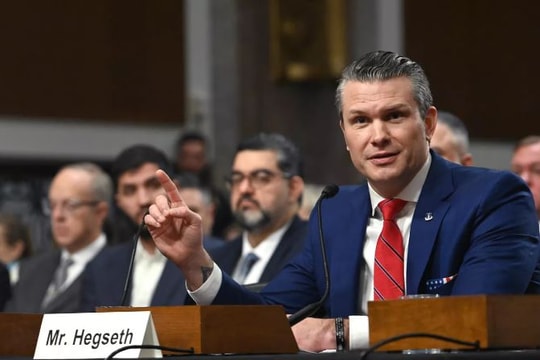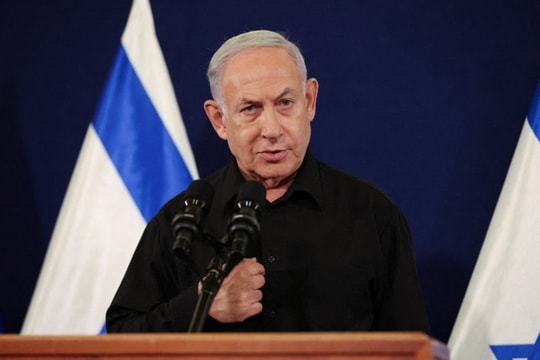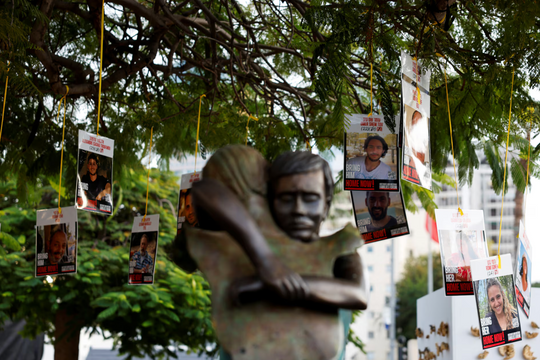Israel says ceasefire will end if Hamas does not return hostages by February 15
Just three weeks into a fragile ceasefire, both Israel and Hamas have repeatedly accused the other of violating the agreement.

According to CNN on February 12, so far, 16 of the 33 hostages scheduled to be released in the current phase of the deal have been released by Hamas, and 656 Palestinian prisoners out of a list of nearly 2,000 have been freed by Israel. But the weekly exchanges may now be interrupted, after Hamas accused Israel of violating the deal and said it would postpone the release of the hostages on February 15 (Saturday), "until further notice".
Responding to this statement, Israeli Prime Minister Benjamin Netanyahu announced late on February 11 that the ceasefire in Gaza would end if Hamas did not release the hostages as planned on February 15.
“If Hamas does not return our hostages by noon on Saturday, the ceasefire will end and the IDF will continue to fight fiercely until Hamas is completely defeated,” Prime Minister Netanyahu said in a video statement.
US President Donald Trump has proposed rejecting the multi-phase approach of the deal altogether and given Hamas an ultimatum to release all hostages at once.
Earlier on February 10, Hamas threatened to postpone the next hostage release, accusing Israel of violating the ceasefire agreement by targeting Palestinians with guns in various parts of Gaza, delaying the return of displaced people from the heavily bombed north and not allowing agreed-upon humanitarian aid into the enclave.
Hamas also accused Israel of delaying the delivery of essential medicines and hospital supplies, and of not allowing tents, prefabricated houses, fuel or rubble-clearing machinery into Gaza.
On February 11, the Gaza Health Ministry said that 92 people in the area had been killed in Israeli military operations since the ceasefire took effect.
A diplomat familiar with the ceasefire talks told CNN that the United Nations, Qatar and other countries have asked to provide temporary shelter to Gaza, but Israel has refused.
Abu Obeida, a spokesman for the Hamas armed forces, said in a social media post on February 10: "We affirm our commitment to the terms of the agreement as long as the occupier commits to complying with them."
In a later statement, Hamas added that there was still a chance for the prisoner release to take place as planned, saying Israel had enough time "to fulfill its obligations".
Defense Minister Israel Katz said on February 10 that Hamas's postponement was "a complete violation of the ceasefire and the hostage release agreement."
Israeli Prime Minister Benjamin Netanyahu held a meeting with his political and security cabinet on February 11, where they are expected to discuss next steps.
Minister Katz said he had instructed the military to "be on the highest alert for any possible situation in Gaza." The Israeli military also said it was raising its readiness level in southern Israel and would send reinforcements to the area to increase "readiness for various scenarios."


.jpg)



